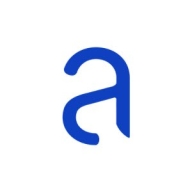

Snyk and Anchore Enterprise are competing in the realm of security and vulnerability management. Snyk has the upper hand in pricing and customer support, while Anchore offers advanced features justifying its cost.
Features: Snyk offers integration capabilities, ease of use in CI/CD pipelines, and developer-friendly interfaces. Anchore provides detailed container analysis, policy enforcement, and in-depth security insights.
Ease of Deployment and Customer Service: Snyk has a straightforward deployment process and responsive support, easing implementation and troubleshooting. Anchore, although robust in deployment options, may require specialized support due to complex features.
Pricing and ROI: Snyk provides competitive pricing, appealing to businesses looking for cost-effective solutions with adequate returns. Anchore, with a higher setup cost, offers significant ROI for organizations seeking in-depth security analysis.
| Product | Market Share (%) |
|---|---|
| Snyk | 5.4% |
| Anchore Enterprise | 0.5% |
| Other | 94.1% |

| Company Size | Count |
|---|---|
| Small Business | 20 |
| Midsize Enterprise | 9 |
| Large Enterprise | 21 |
Anchore Enterprise is used for automated container image scanning, identifying vulnerabilities, and ensuring compliance with security policies. It integrates security checks into CI/CD pipelines, catching vulnerabilities early and managing security standards across different container environments.
Anchore Enterprise offers powerful features for maintaining container security. It integrates seamlessly with CI/CD pipelines to enforce security policies and generate detailed vulnerability reports. Its support for Docker and Kubernetes, along with continuous monitoring, ensures software supply chain security. Despite compatibility issues with other tools and the need for better documentation and advanced analytics, Anchore Enterprise supports enhanced security measures and compliance within containerized applications.
What are the key features of Anchore Enterprise?
What benefits or ROI can users expect from Anchore Enterprise?
In industries such as finance, healthcare, and e-commerce, Anchore Enterprise helps organizations maintain strict security and compliance standards for their containerized applications. It integrates into existing workflows, ensuring that security is maintained without disrupting development and deployment processes. By continuously monitoring container environments, it helps keep sensitive data secure and compliant with industry regulations.
Snyk excels in integrating security within the development lifecycle, providing teams with an AI Trust Platform that combines speed with security efficiency, ensuring robust AI application development.
Snyk empowers developers with AI-ready engines offering broad coverage, accuracy, and speed essential for modern development. With AI-powered visibility and security, Snyk allows proactive threat prevention and swift threat remediation. The platform supports shifts toward LLM engineering and AI code analysis, enhancing security and development productivity. Snyk collaborates with GenAI coding assistants for improved productivity and AI application threat management. Platform extensibility supports evolving standards with API access and native integrations, ensuring comprehensive and seamless security embedding in development tools.
What are Snyk's standout features?Industries leverage Snyk for security in CI/CD pipelines by automating checks for dependency vulnerabilities and managing open-source licenses. Its Docker and Kubernetes scanning capabilities enhance container security, supporting a proactive security approach. Integrations with platforms like GitHub and Azure DevOps optimize implementation across diverse software environments.
We monitor all Container Security reviews to prevent fraudulent reviews and keep review quality high. We do not post reviews by company employees or direct competitors. We validate each review for authenticity via cross-reference with LinkedIn, and personal follow-up with the reviewer when necessary.